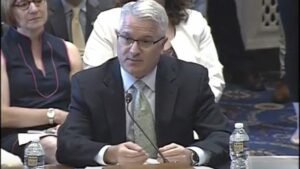Every December, the U.S. and global seed sector joins together in Chicago, Ill., to network and examine one question: What’s going on in the U.S. seed sector, and how is it affecting the global seed sector?
Though that question might only be on the minds of some in the industry part of the year, it’s a question the American Seed Trade Association’s (ASTA) CEO Andy LaVigne is always considering. And this year has been a doozy in terms of pieces thrown at the seed sector.
What’s been on the minds of ASTA members? LaVigne says the association follows a few different issues under ASTA’s strategic pillars — international activities, domestic policy, intellectual property rights, communications, sustainability and membership and internal matters.
“At the end of the day, we want to ensure that our members can operate across the board, no matter the size or the sector that they’re in — whether they’re organic, conventional or biotechnology,” he says. “For us, that means having a great relationship and working closely with state and federal government agencies, elected officials, our international counterparts and international policymakers to make sure if they’re developing policy, it doesn’t negatively impact our industry.”
Right now, ASTA has a few things on their radar as it concerns members. Supply chains and inflation are causing stress on both companies, growers and consumers — all of which can impact input costs for growers producing the next year. In addition, concerns have popped up around grain trade — especially as Mexico announced a ruling to phase out GMO corn throughout the country.
“It’s important that we have policy on seed that enables farmers to use the latest technologies and innovations,” LaVigne says. “We’ve got a great industry here and we want to continue to drive that long term vibrancy of the American seed industry.
Watch the whole interview to hear about different regulations impacting the U.S. seed sector.











